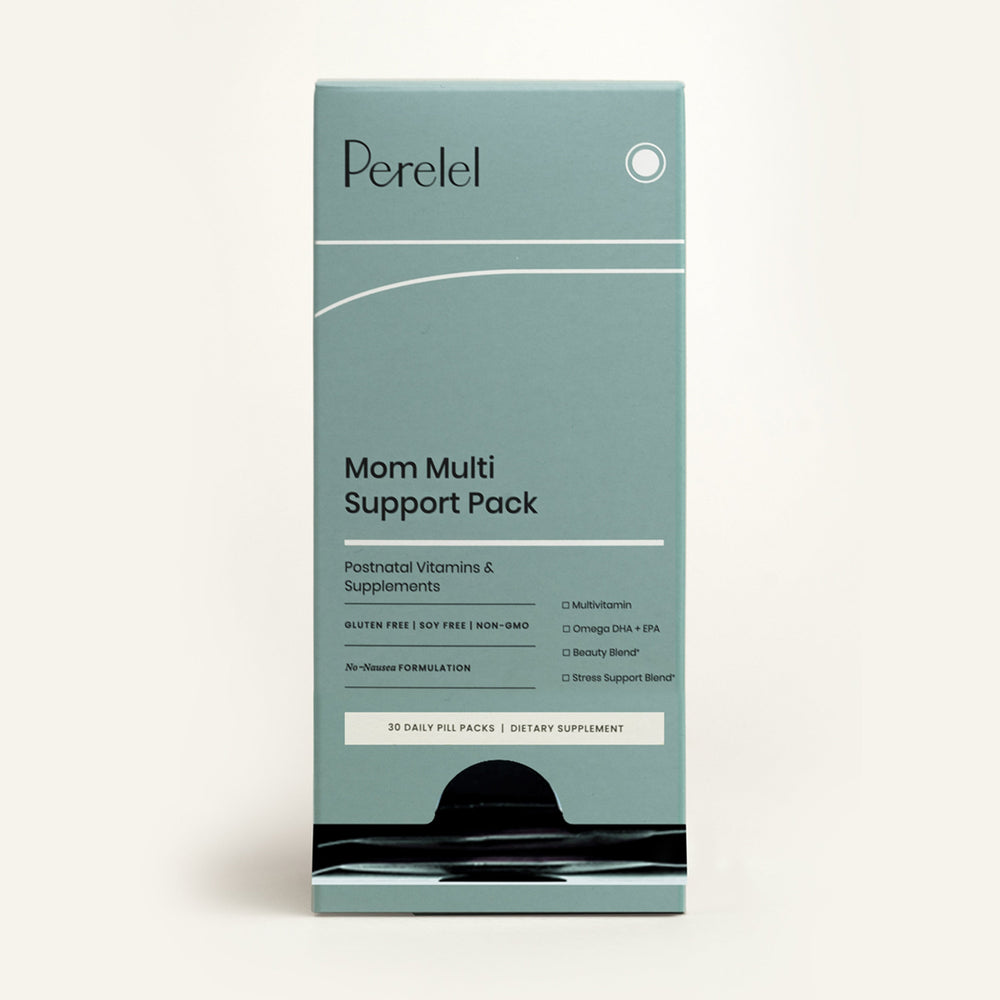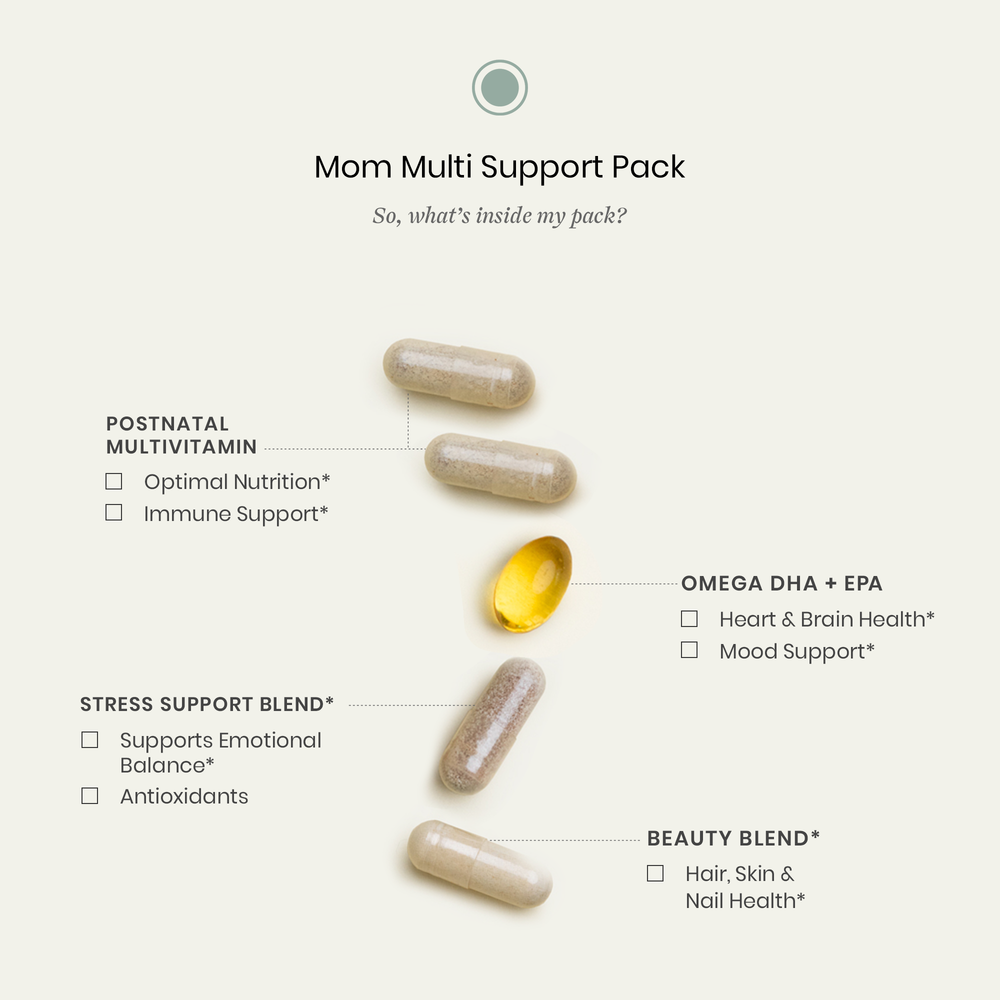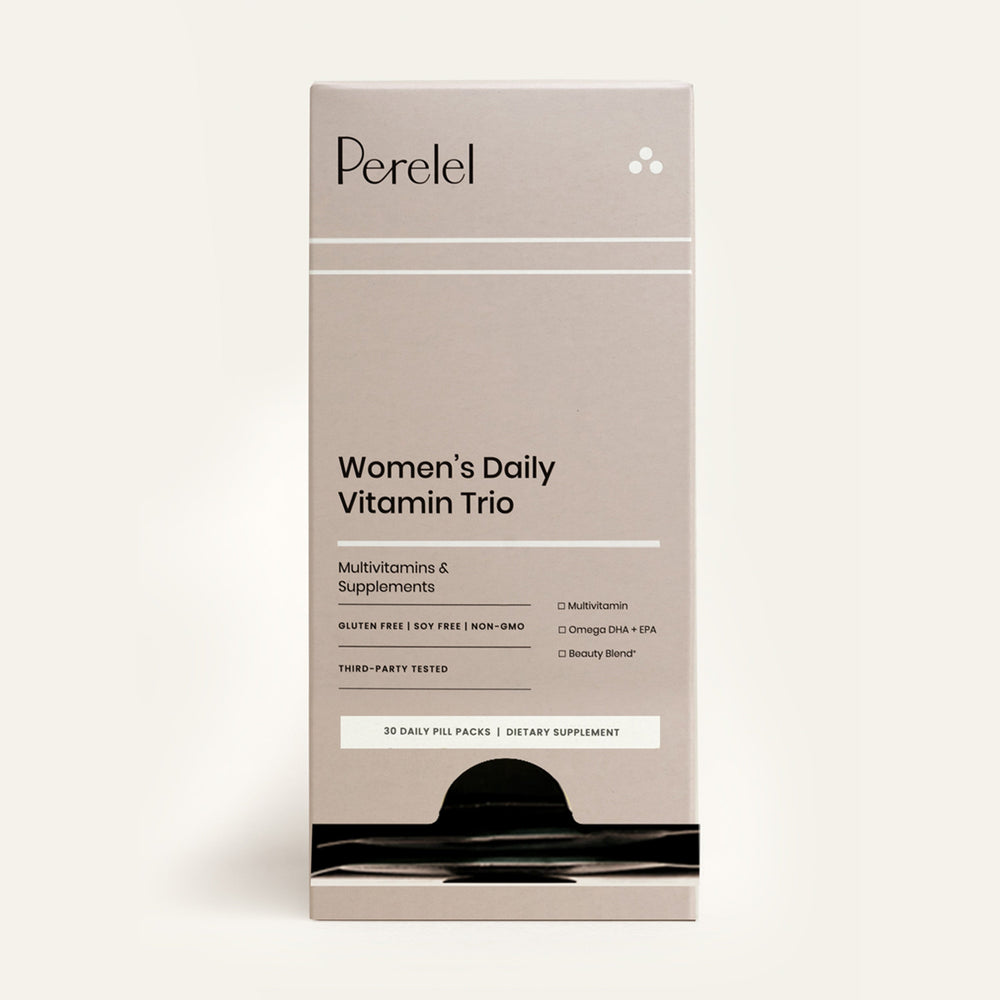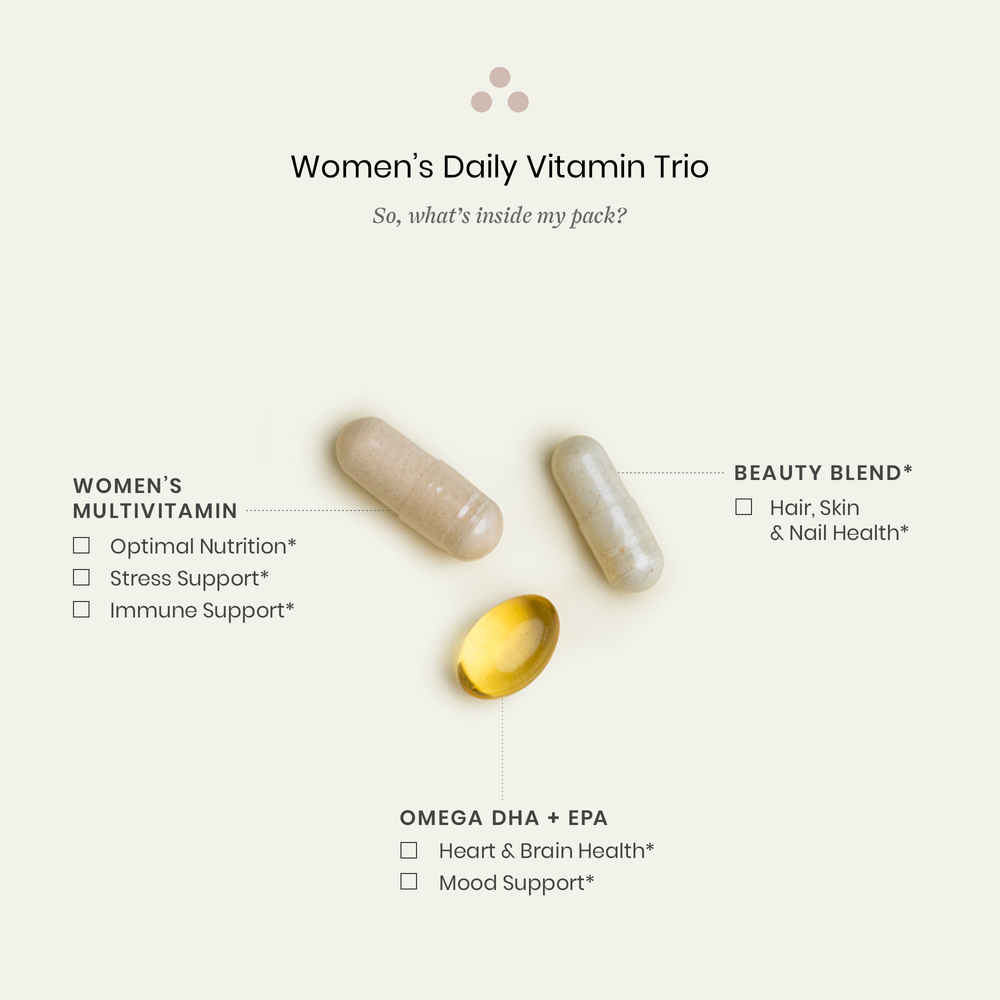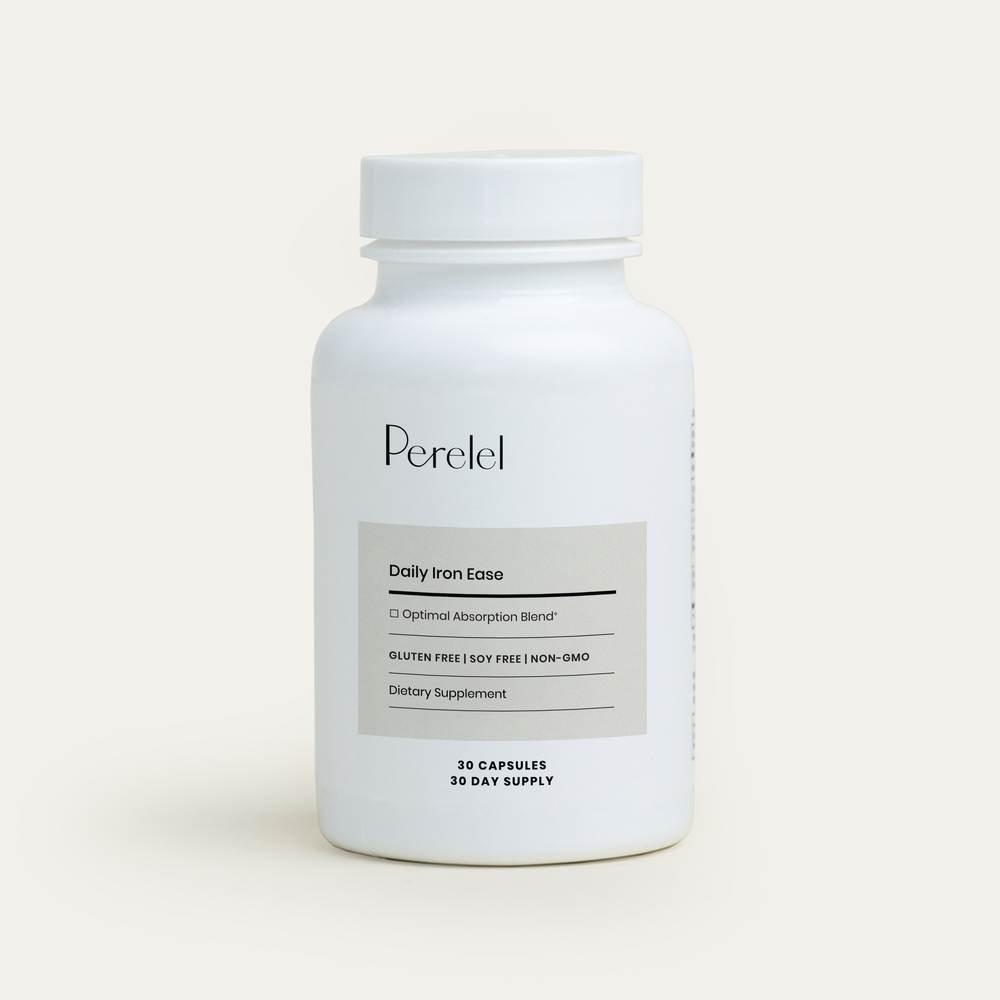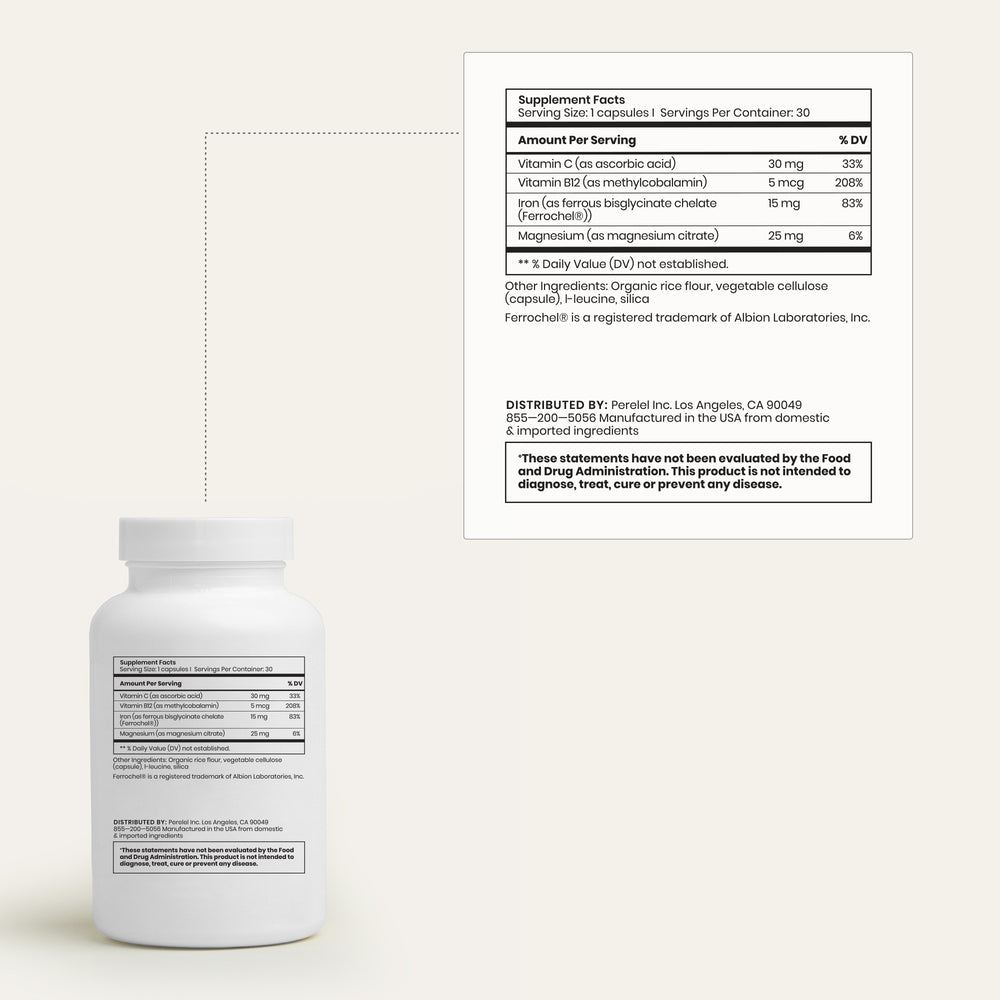You knew pregnancy would change your body. You were prepared for the growing belly, the swollen ankles, the stretch marks. Heck, you might have even been ready for a jump in shoe size. What you may not have been prepared for though, is the toll pregnancy can take on your hair. For many women, with pregnancy comes thick, lustrous locks. But for the less fortunate, pregnancy can bring the frustrating side effect of thinning or falling out hair.
The good news is, like morning sickness, swollen limbs and many other less glamorous side effects of pregnancy, this symptom is typically temporary.
We're breaking down everything you need to know about pregnancy and postpartum hair loss. Keep reading for your complete guide.
What Causes Pregnancy Hair Loss?
Although pregnancy-related hair loss most commonly occurs after delivery, hair loss during pregnancy isn’t uncommon—this unfortunate symptom impacts 40 to 50 percent of women.1 Pregnancy hair loss can be the result of many factors, including hormones, nutrient deficiencies, and certain medical conditions, to name a few.
Hormonal Changes
From the moment you conceive, the hormone levels in your body start changing significantly. All of that change can put stress on your body and for some women, triggers what’s called telogen effluvium (TE), a fancy term for stress-induced hair loss.
With TE, instead of the typical 10 percent of hair entering the shedding phase at any given time, as much as 30 percent enters this phase. This means that you’re not only losing more hair than usual, there’s also less hair in the growing phase.1
Iron Deficiency
Pregnant women are particularly susceptible to iron deficiency anemia, a condition in which there are too few healthy red blood cells to transport oxygen to tissues in the body.2
During pregnancy, the volume of blood in your body increases. Since iron is required to produce hemoglobin, a protein in red blood cells that carries oxygen to your tissues—and to your growing baby, an increase in blood volume means an increase in your body’s need for iron.2
For some pregnant women, iron deficiency can be to blame for thinning hair. This type of nutrient deficiency impacts the body’s ability to transport oxygen to the tissues in your body. Pregnant women are at an increased risk of developing iron deficiency anemia, particularly if:
- They are expecting more than one baby
- They’re vomiting frequently due to morning sickness
- Their diet is lacking in iron-rich foods
- They’ve had two pregnancies within a short span of time
- They experienced heavy periods pre-pregnancy
- They have a history of anemia 2
In addition to thinning hair, iron deficiency can cause fatigue, weakness and dizziness, headache, pale skin, shortness of breath and a craving for ice, a condition called pica.3 In instances of severe anemia, a rapid heartbeat, low blood pressure and trouble concentrating may occur.2 If you suspect that you may have an iron deficiency, talk to your doctor—he or she can administer a blood test and may suggest supplementing iron in your diet with iron vitamins.2

Medical Conditions
Hypothyroidism is a medical condition in which the thyroid, a small gland in your neck, becomes under-active and as a result, produces insufficient amounts of thyroid hormones.
It is a fairly common condition, impacting two to three out of every 100 pregnant women, and one of the primary symptoms includes hair loss.4 Other side effects include fatigue, weight gain, trouble concentrating, constipation, skin changes and muscle cramps.4 Since many of these symptoms are already common in pregnancy, hypothyroidism can go undetected. If you suspect you may suffer from this medical condition, it’s a good idea to ask your doctor for a blood test.
Other medical conditions that may cause hair loss include alopecia areata, which is related to the immune system, scalp infections like ringworm, and a hair-pulling disorder called trichotillomania.5 Your doctor can help you determine if any of these are at play.
What Causes Postpartum Hair Loss?
Hair loss is more common during the postpartum period than during pregnancy itself. That’s because the increase in estrogen and other hormones that takes place during pregnancy dramatically slows the normal hair shedding process.1 Once the baby is born and those hormones return to normal, much of the hair that had been in the resting phase during pregnancy falls out.1 Postpartum hair loss is typically most acute three to four months after delivery. Fortunately, it tends to taper off between six to 12 months,1 but that can feel like a long time for those experiencing this unfortunate pregnancy symptom. For those women, supplementing can be helpful.
According to Maternal-Fetal Medicine Doctor, Amber Samuel, “Most all women will lose hair in the postpartum period, once again related to hormone changes during and after pregnancy. Prenatal vitamins will not prevent this, however they may encourage new hair growth after loss and maintain texture and healthy appearance of hair despite any thinning that may be noticed. Many vitamins become deficient during breastfeeding as this is the most metabolically active time for women. Thus, continued supplementation is recommended at least until breastfeeding has concluded.”
Moms experiencing postpartum hair loss should consider Perelel’s Mom Multi Support Pock includes a Beauty Blend with biotin and collagen that supports healthy skin, hair and nails postpartum and throughout motherhood.

How Do I Prevent Pregnancy Related Hair Loss?
While pregnancy and postpartum hair loss may not be avoidable, there are measures you can take to minimize both and help regrow hair. The first is to ensure you follow a balanced diet, full of nutrient-dense foods like fruits and veggies, which are packed with flavonoids and antioxidants that may provide hair follicle protection and promote hair growth. If your diet is lacking, you may want to consider supplementing.1
“Research has shown that the vitamins which are most necessary in growth and maintenance of hair are biotene, which is also known as vitamin B7, iron, vitamin C, vitamin D and zinc. With the exception of vitamin C, these are all commonly lower during pregnancy and in the postpartum period,” Dr. Samuel explains.
“Prenatal vitamins are important for hair supplementation as both demand from hair growth is increasing and supply is decreasing because of the nutrients taken across the placenta to your little one. Vitamin supplementation can offset that placental loss.”
Perelel offers a 1st Trimester Prenatal Pack that contains a whole host of nutrients that are good for your body, your baby, and also your hair. Consult with your doctor to determine which vitamins and minerals would be best for you.
Shop the Article:
Other measures you can take to prevent pregnancy and postpartum hair loss? Avoid pulling your hair too tight in ponytails, braids, headbands or cornrows. Try to minimize use of styling tools like hair dryers, straighteners and curling irons. If you do utilize them, use the cool setting as much as possible. Some experts recommend shampoos and conditioners with biotin and silica for women experiencing hair loss.
If your hair loss is extreme, or doesn’t seem to resolve, talk to your doctor. He or she may request a blood test to ensure there aren’t any medical issues at play.
Shop postnatal vitamins to offset postpartum hair loss now. Plus, learn about the three things an OB/GYN wants you to know about the fourth trimester.
This article is for informational purposes only. It is not, nor is it intended to be, a substitute for professional medical advice, diagnosis, or treatment and we recommend that you always consult with your healthcare provider. To the extent that this article features the advice of physicians or medical practitioners, the views expressed are the views of the cited expert and do not necessarily represent the views of Perelel.



